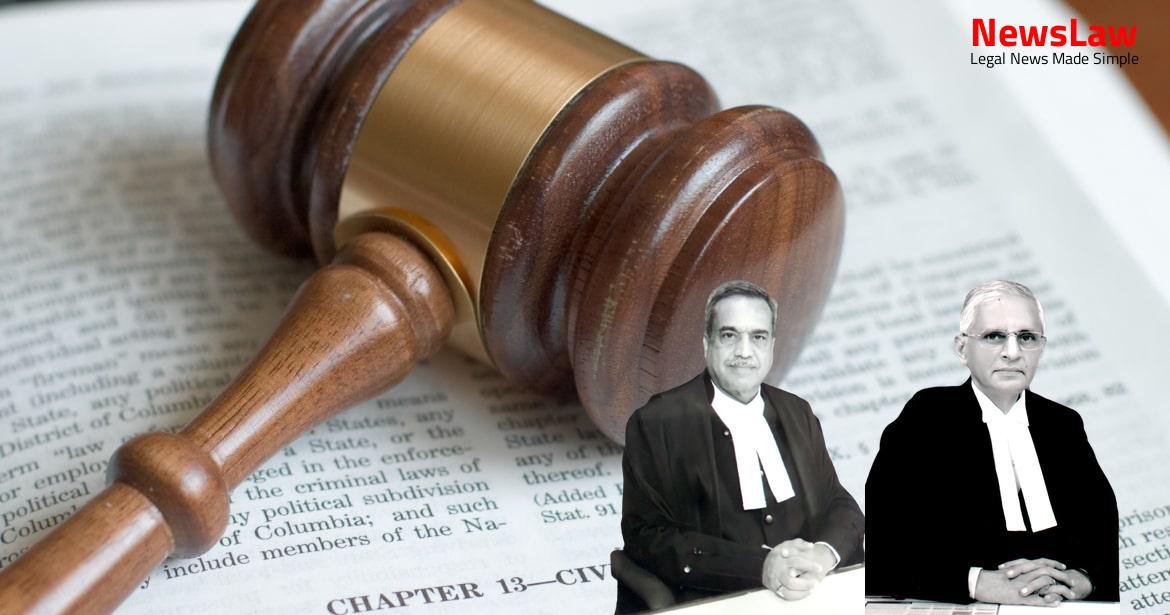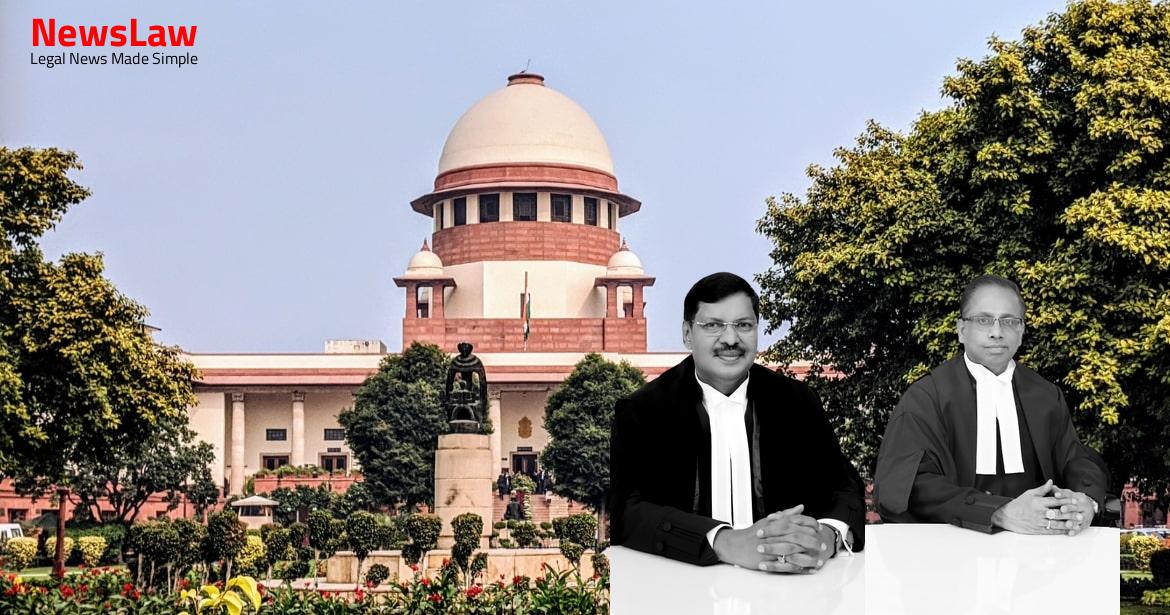In a landmark judgment by the Supreme Court of India, the case of currency conversion in arbitral awards was decisively settled. The Court’s ruling addressed key uncertainties surrounding foreign exchange rates and the important question of determining the appropriate date for conversion. This ruling has significant implications for parties involved in arbitration proceedings, providing clarity on the relevant date for converting foreign currency amounts to Indian rupees. Stay updated on the latest developments in arbitration law with this pivotal decision by the Supreme Court.
Facts
- The appellants and the respondent entered into a contract for the design, engineering, and supply of two generators.
- The respondent filed for execution of the award in 2004, leading the appellants to file a petition under Section 34 of the Arbitration and Conciliation Act, 1996, which was dismissed in 2010.
- Both parties agreed that the appeal and the Section 34 application would be dismissed as withdrawn.
- The exchange rate for conversion of the deposited amount of Rs. 7.5 crores was determined to be 1 euro = Rs. 59.17 on the date of deposit (22.10.2010).
- The appellants filed objections against the award under Section 48 and also filed a Section 37 appeal against the Section 34 order.
- The respondent received Rs. 11,60,12,100, including accrued interest, on 10.10.2016.
- The High Court held that the date of dismissal of objections in the SLP would be the proper date for disbursement of the awarded amount.
- The relevant date for currency conversion was determined to be 01.07.2014.
- Section 49 of the Act was referred to, stating that a foreign arbitral award is deemed a decree of the court when it is enforceable under Part II, Chapter I of the Act.
- The Court emphasized that the satisfaction required under Section 49 is complete only when objections under Section 48 are finally decided.
- The Court rejected the appellant’s reliance on a previous court decision and determined the relevant date for conversion as the date objections were finally decided.
- The Court highlighted delays by the appellants in executing the award and ruled that they cannot benefit from exchange rate fluctuations due to their delays.
- The Trial Court allowed the execution petition, converting the award amount to Indian rupees based on the date objections were finally decided, as it marked the award becoming a decree.
- The Court referenced a decision by the Delhi High Court for guidance on the relevant date for conversion.
Also Read: Delhi Municipal Corporation Act Nomination Dispute
Issue
- The issue in the present appeal pertains to the enforcement of an arbitral award denominated in foreign currency.
- Two main uncertainties affecting the determination of the foreign exchange rate for converting the award amount to Indian rupees are identified: the time lapse between the award date and enforceability, and the fluctuating global exchange rates.
- The specific question at hand involves determining the appropriate date for foreign exchange rate conversion in the case where the award debtor deposits some amount before the court during proceedings challenging the award.
Also Read: Judicial Review in Slum Rehabilitation: Supreme Court’s Landmark Ruling
Arguments
- Mr. Mishra heavily relied on Voith Hydro case where the arbitral award was partly paid against bank guarantees under a Niti Ayog circular.
- The crux of Mr. Mishra’s argument is that the deposited amount stands converted as on the date of its deposit and cannot be converted again as per the exchange rate prevailing on 01.07.2014.
- He highlighted that the High Court directed the appellants to deposit Rs. 7.5 crores on the consent of both parties, and also permitted the respondent to withdraw this amount on furnishing a bank guarantee in Indian rupee for the entire sum.
- Mr. Mahajan, representing the respondent, argued that the exchange rate on 01.07.2014 should apply to the entire award amount, which could lead to significantly higher payment requirements from the appellants if the impugned judgment is upheld.
- The respondent did not consent to the deposit of Rs. 7.5 crores.
- The High Court only directed the deposit of a lump sum amount.
- The judgment debtor depositing a sum in court during the appeal does not pass the title to the decree-holder.
- The payment is not in satisfaction of the decree; it is to obtain a stay of execution and put the money beyond reach during the appeal.
- The purpose of the deposit is to secure a stay of execution and protect the money pending appeal.
- The exchange rate used for converting the arbitral award and interest was 1 euro = Rs. 82.21.
- The deposit of Rs. 8 crores during the objections under Section 48 did not pass the title to the respondent as the award was deemed a decree only on 01.07.2014.
Also Read: Justice Served: High Court Judgement in Favor of Mr. K. Rajashekhara Reddy and Writ Petitioner
Analysis
- The Court analyzed the statutory scheme for the enforcement of foreign arbitral awards in India.
- It discussed the relevant date for conversion of foreign currency in the context of arbitral awards and judgments.
- The Court rejected various dates for conversion, including the date when the amount becomes due, the date of the commencement of the action, and the date of payment.
- It found that the date of the decree or judgment is the most appropriate for determining the conversion rate.
- The Court emphasized that under the 1996 Act, no separate decree is required for making a foreign award enforceable.
- It highlighted the principles set out in Forasol v. Oil and Natural Gas Commission for determining the relevant date for conversion under the 1996 Act.
- The Court also examined case-law examples to support its interpretation of the proper date for conversion in foreign currency cases.
- It concluded that the date of the decree or judgment, when all remedies are exhausted, is crucial for determining the exchange rate to convert foreign currency amounts.
- The Court held that this date ensures equity and aligns with the automatic enforceability of foreign awards under the 1996 Act.
- It detailed the process of conversion in specific scenarios of deposit during legal proceedings and emphasized the need to consider the Foreign Exchange Regulation Act for such conversions.
- Foreign awards enforceable under Chapter treated as binding on parties
- Court has power to refer parties to arbitration
- Grounds on which court may refuse enforcement of foreign award listed in Section 48
- Foreign award enforceable under Chapter deemed to be a decree of the court in Section 49
- Courts in India can pass a decree for a sum expressed in foreign currency.
- A deposit does not pass title to the decree-holder and is only a way to obtain a stay on execution.
- Decrees of the court can only be enforced through an application for execution.
- Interest ceases on any amount deposited into the court once notice to the plaintiff/decree-holder is served.
- Once the amount is tendered to the decree-holder by the judgment-debtor, interest cannot be imposed on that amount.
- The date of court order for execution is rejected as the proper date for conversion due to the lengthy execution process in India.
- The law from Forasol was affirmed by a 3-judge bench in Renusagar Power Co. Ltd v. General Electric Co.
- The process of conversion of foreign currency amounts to Indian rupee varies in different cases based on the applicable law.
- Foreign awards can be enforced in foreign currency or Indian rupee.
- Different rules govern interest calculation on deposits made by defendant/judgment-debtor at pre-decretal and post-decretal stages.
- The Court considered the ability of the decree-holder to access and use the money according to his discretion.
- The case of P.S.L. Ramanathan Chettiar was distinguished from the current matter.
- Another decision in the case of Delhi Development Authority v. Bhai Sardar Singh and Sons was also discussed.
Decision
- The relevant date for determining the conversion rate of a foreign arbitral award expressed in foreign currency is when the award becomes enforceable, as per the Act and the principle in Forasol case.
- If the award amount is deposited in court pending objections, the date of deposit shall be the relevant date for conversion, as per the principle in Renusagar Power Co Ltd v. General Electric Co.
- The deposited amount must be converted as on the date of the deposit, and the remaining amount of principal and interest pending under the arbitral award must be converted on the date when the objections against it are finally decided.
Case Title: DLF LTD. (FORMERLY KNOWN AS DLF UNIVERSAL LTD.) Vs. KONCAR GENERATORS AND MOTORS LTD. (2024 INSC 593)
Case Number: C.A. No.-007702-007702 – 2019



